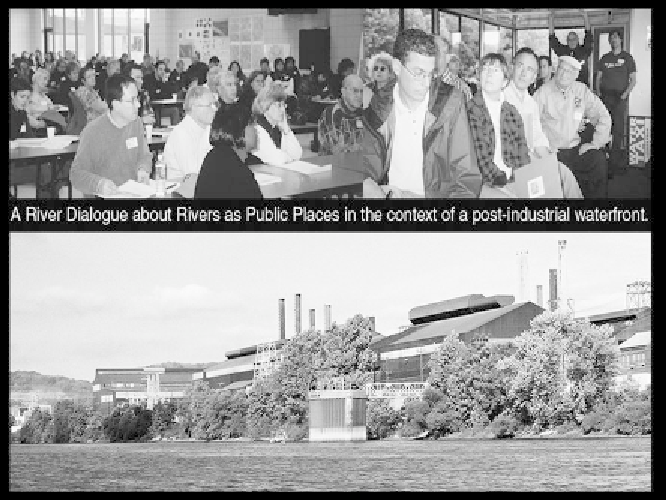Environmental Engineering Reference
In-Depth Information
discourse. Strategic knowledge is information that was previously missing from public
discussions; in this case, about land use and environmental protection. Carefully cho-
sen strategic knowledge can transform the operative value systems that inform deci-
sion making. When publicly distributed, it has the potential to reinforce democratic
process.
The work on 3R2N involved the development of platforms for discourse, in this
case, “River Dialogues” with partners. We planned and organized four- to six-hour
days, where citizens and decision makers assembled to participate in expert seminars
about the rivers, then boarded a boat to experience and discuss the rivers. Upon re-
turning to the dock, we would all eat together and then assemble around working ta-
bles for protracted, recorded, and illustrated conversations about a particular stretch of
riverfront (fig. 21.1). Each table had a facilitator, an artist, a planner, a note taker, and
one or more “drawers” (i.e., people who encouraged everyone to pick up pencils,
pens, and markers) to unpack the day's experience and record the opportunities and
constraints connected to postindustrial use of our regional waterways and waterfront.
The record from those sessions appeared in our yearly reports. They became the basis
for a regional river trail plan.
Process
In the process of developing this body of work, we discovered that intimate proximity
and sustained relationships with rivers, land, and natural systems was an essential pre-
FIGURE 21.1.
A promotional postcard for 3R2N eco-art project by Tim Collins and Reiko
Goto. (Photo courtesy of the artists)

